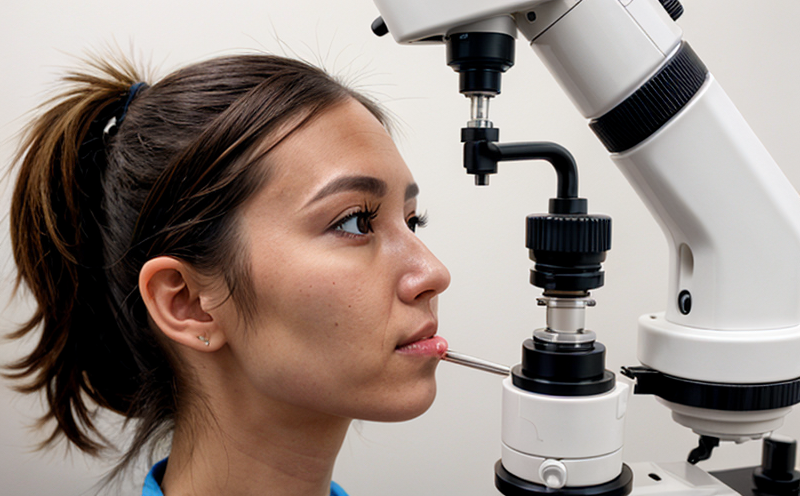ISO 18369-1 Contact Lens General Requirements Testing
The ISO 18369 series of standards provides a comprehensive framework for the design, manufacture, and testing of contact lenses to ensure they meet stringent safety and performance criteria. The first part of this standard, ISO 18369-1:2017, outlines general requirements that all contact lens products must comply with before being marketed or sold.
The primary purpose of ISO 18369-1 is to establish a baseline for the design and production processes that ensure the safety and effectiveness of contact lenses. This includes criteria related to material composition, manufacturing methods, labeling requirements, and packaging specifications. Compliance with these standards helps manufacturers meet regulatory requirements in various jurisdictions around the world.
The testing procedures defined by ISO 18369-1 are designed to assess key aspects such as biocompatibility, mechanical stability, optical performance, and overall product quality. These tests help ensure that contact lenses will not cause harm when worn by users and perform their intended functions correctly.
Compliance with this standard is particularly important for medical device companies involved in the research, development, manufacturing, or distribution of contact lenses. By adhering to these guidelines during product design and production stages, manufacturers can demonstrate adherence to international best practices and enhance trust among healthcare professionals who recommend their products.
Some key elements assessed under ISO 18369-1 include:
- Biocompatibility: Evaluation of potential adverse reactions from lens materials
- Mechanical Properties: Assessment of durability and resistance to deformation
- Optical Characteristics: Verification of clarity, color accuracy, and refractive index
- Manufacturing Precision: Ensuring consistent quality across all manufactured units
Why Choose This Test
Selecting ISO 18369-1 Contact Lens General Requirements Testing is crucial for several reasons. Firstly, it ensures that your contact lens products meet the highest standards of safety and efficacy. Secondly, compliance with this standard enhances credibility within the industry and builds trust among consumers who rely on these products daily.
For quality managers and compliance officers responsible for ensuring product integrity throughout the supply chain, adhering to ISO 18369-1 provides peace of mind knowing that every aspect of your contact lens manufacturing process is being scrutinized against internationally recognized benchmarks. This can significantly reduce risks associated with non-compliance penalties or recalls.
R&D engineers benefit greatly from this testing as it allows them to refine designs based on empirical data rather than speculation. Additionally, procurement teams involved in sourcing raw materials and components can rest assured that suppliers are meeting the necessary quality thresholds outlined by ISO 18369-1.
| Benefit | Description |
|---|---|
| Data Integrity | Accurate, consistent data collected during testing ensures reliable product performance. |
| Risk Management | Identifies potential hazards early in the development cycle reducing costly post-market interventions. |
| Regulatory Compliance | Facilitates smoother interactions with regulatory bodies ensuring faster market clearance. |
International Acceptance and Recognition
The ISO 18369 series has gained widespread acceptance across many countries, making it a global standard for contact lens manufacturing. Its adoption reflects an ongoing commitment to improving public health through safer and more effective ocular care solutions.
Regulatory bodies worldwide recognize the value of conforming to these standards when approving new products or assessing existing ones. For instance, European Union directives explicitly reference ISO 18369 as part of their classification system for medical devices. Similarly, United States Food and Drug Administration (FDA) guidelines encourage manufacturers to align with this standard.
By incorporating ISO 18369-1 into your quality assurance protocols, you not only enhance your product's marketability but also contribute positively towards advancing healthcare standards globally.
Use Cases and Application Examples
- New Product Development: Ensures new contact lens designs meet all necessary regulatory requirements.
- Manufacturing Process Validation: Verifies that production facilities adhere to specified standards.
- Packaging Integrity Checks: Confirms that packaging materials do not compromise product integrity.
- Labeling Accuracy: Validates information provided on labels regarding usage instructions and warnings.





